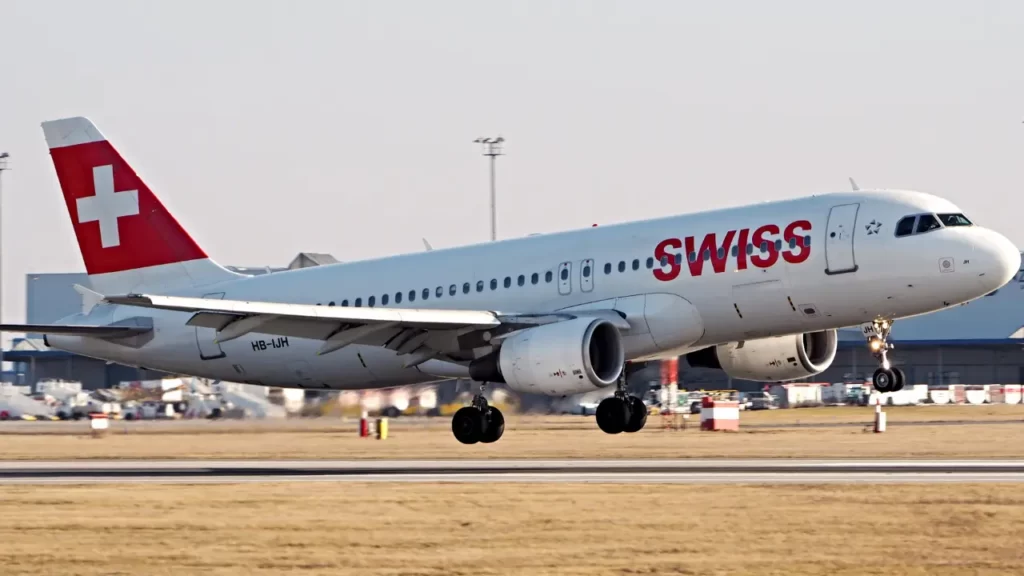
Swiss International Air Lines (SWISS) Overview
Swiss International Air Lines (SWISS) is the national airline of Switzerland. Here is an overview of Swiss International Air Lines:
Table of Contents
Foundation and History:
- Swiss International Air Lines was founded in 2002, following the bankruptcy of its predecessor, Swissair. It officially commenced operations in March 2002.
Ownership:
- SWISS is a subsidiary of the Lufthansa Group, one of the largest airline groups in Europe. Lufthansa acquired SWISS in 2005.
Hub and Main Base:
- SWISS operates its main hub at Zurich Airport (ZRH). Zurich serves as a major international gateway for the airline.
Fleet:
- SWISS has a modern fleet of aircraft, including various models of Airbus and Boeing. The fleet is regularly updated with newer, more fuel-efficient planes.
Network:
- SWISS operates a comprehensive network of both short-haul and long-haul flights. The airline connects Zurich and Geneva to various destinations around the world.
Alliance and Partnerships:
- SWISS is a member of the Star Alliance, a global airline alliance. This affiliation allows SWISS passengers to benefit from a broader network of routes and shared services with other member airlines.
Service Classes:
- SWISS offers different classes of service, including Economy Class, Business Class, and First Class. Each class provides passengers with varying levels of comfort, services, and amenities.
Premium Lounges:
- SWISS operates lounges at various airports, including the SWISS Business and SWISS Senator Lounges. These lounges offer premium services and amenities for eligible passengers.
Sustainability Initiatives:
- Like many airlines, SWISS is increasingly focusing on sustainability. The airline has implemented measures to reduce its environmental impact, including fuel-efficient fleet management and eco-friendly operational practices.
Awards and Recognition:
- SWISS has received numerous awards for its service, including recognition for its in-flight catering and customer service.
COVID-19 Pandemic Impact:
- The global aviation industry, including SWISS, faced challenges due to the COVID-19 pandemic. SWISS, like other airlines, implemented measures to adapt to the changing travel landscape.
Swiss International Air Lines History

Swiss International Air Lines (SWISS) has a history rooted in the restructuring of the Swiss aviation industry following the bankruptcy of its predecessor, Swissair. Here’s an overview of key milestones in the history of Swiss International Air Lines:
Background and Formation:
- Swissair, the former national carrier of Switzerland, faced financial troubles and declared bankruptcy in 2001. In the aftermath, the Swiss government and various stakeholders sought to create a new national airline to ensure the country’s connectivity.
- Swiss International Air Lines (SWISS) was founded on March 31, 2002, as a successor to Swissair. The goal was to establish a new airline with a fresh start.
Early Operations:
- SWISS commenced operations on April 1, 2002, taking over some of Swissair’s assets, including its infrastructure and personnel.
Acquisition by Lufthansa:
- In 2005, the German airline group Lufthansa acquired SWISS. The acquisition strengthened the ties between SWISS and Lufthansa, as both airlines became part of the same aviation group.
Fleet Modernization:
- SWISS embarked on a fleet modernization program, introducing new and more fuel-efficient aircraft to enhance its operational efficiency.
Integration into Star Alliance:
- SWISS became a member of the Star Alliance in 2006. Joining this global airline alliance allowed SWISS to collaborate with other member airlines and expand its network.
Expansion of Long-Haul Routes:
- SWISS expanded its long-haul route network, connecting Zurich to major cities worldwide. The airline has been recognized for its high-quality service in both Business and First Class cabins.
Branding and Identity:
- SWISS adopted a distinctive branding, including the iconic white cross on the red tail fin, reflecting Switzerland’s national flag. The airline has positioned itself as a premium carrier known for its quality service.
Introduction of New Aircraft:
- SWISS introduced new aircraft models, including Airbus A330s and A340s for long-haul flights, and Airbus A320 family aircraft for short-haul operations.
Sustainability Initiatives:
- SWISS, like many other airlines, has focused on sustainability initiatives to reduce its environmental impact. This includes fleet renewal with more fuel-efficient planes and other eco-friendly practices.
Resilience and Adaptation:
SWISS has faced challenges, including those posed by the global economic downturn and the impact of events such as the COVID-19 pandemic. The airline has shown resilience and adaptability in responding to changing market conditions.
Please note that developments may have occurred since my last update in January 2022. For the latest and most accurate information about Swiss International Air Lines, including its current fleet, routes, and any recent changes, it is recommended to check the official SWISS website and recent news sources.
